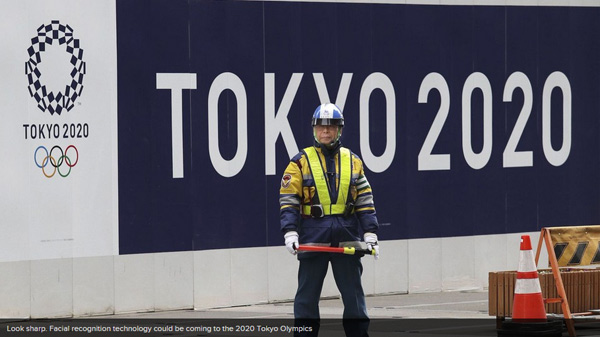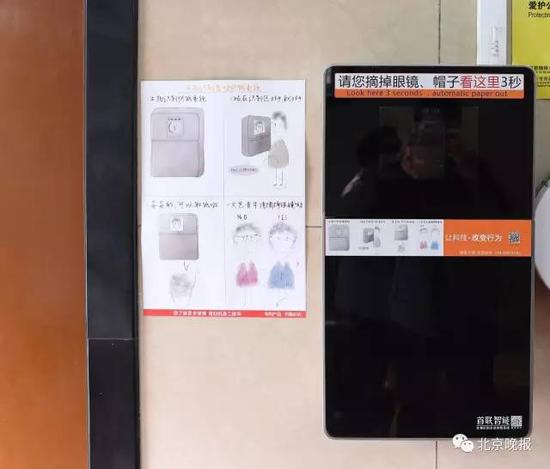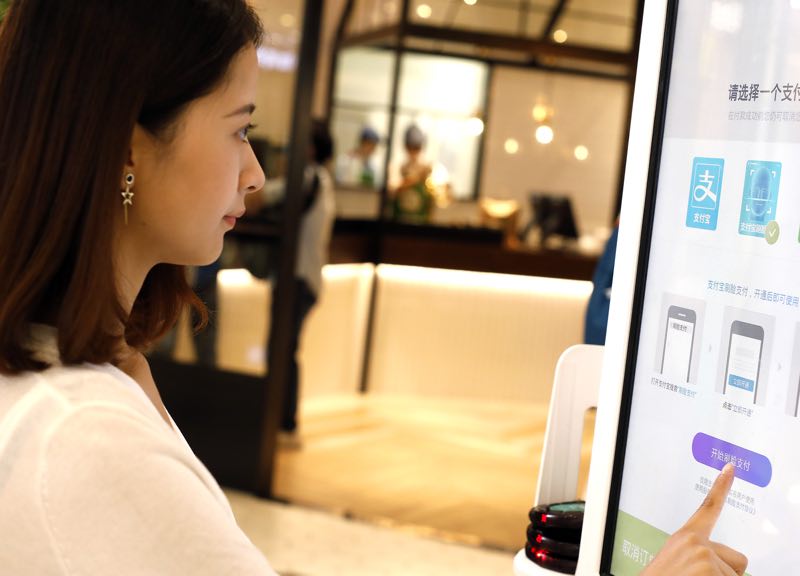2020東京奧運會:參賽人員將“刷臉”進場 Tokyo may use facial recognition for security at the 2020 Olympics
中國日報網 2018-01-04 09:00

日本人最善于發明各種實用和不實用的高科技產品,2020年東京奧運會上自然也少不了高科技的身影。日前,日本媒體透露,東京奧運會將采用人臉識別技術來加強安檢,需要“刷臉進場”的參賽運動員及工作人員預計將達到30多萬。

While the 2018 Winter Olympics in Pyeongchang, South Korea are just around the corner, attention is already turning to the 2020 Summer Olympics and Paralympics in Tokyo, Japan as reports indicate that facial recognition will be used as a security measure at those games.
盡管2018韓國平昌冬奧會近在眼前,人們的關注點卻已經轉移到了2020年在日本東京舉辦的夏季奧運會和殘奧會上,因為有報道稱,東京奧運會將采用“刷臉”作為安保措施。
The Japan Times reported that sources confirmed the technology would be used to "streamline the entry of athletes, officials and journalists to the games venues."
《日本時報》報道稱,消息人士證實,人臉識別技術將被用來“精簡運動員、官員和記者入場的流程”。
While spectators won't be subject to the recognition treatment, the number of people from the groups that will be screened with facial recognition could total anywhere between 300,000 and 400,000, according to the Times report. The extra layer of security will come on top of ID cards that will also be handed out to those participants.
據《日本時報》報道,觀眾無需“刷臉”進場,不過,接受人臉識別安檢的人數預計將在30萬至40萬間。這一額外的安檢信息將被錄入到身份識別卡上并發放給上述人員。
The organizing committee tested the technology at Japan's housing during the 2016 Summer Olympics in Rio de Janeiro, Brazil with moderate success though there were complaints of long waits. They hope to sort out the wait and other issues over the next 2.5 years ahead of the Tokyo Games which start in late July 2020.
在2016年巴西里約夏季奧運會期間,東京奧組委曾在日本代表團駐地測試了這一技術,結果還算成功,不過,有人抱怨等待時間太長。日本希望在未來的兩年半時間內,也就是在2020年7月底東京奧運會開始前,解決等待時間過長等問題。
NEC, the company handling the technology, also tested out their gear at two Brazil airports during the 2016 Olympics and is behind numerous other similar projects, including software used by the Chicago Police.
在2016年里約奧運會期間,研發這一技術的日本電氣股份有限公司還在巴西的兩個機場測試了他們的人臉識別設備,并為其他幾個類似的項目提供了技術支持,其中包括芝加哥警方使用的軟件。
Facial recognition is becoming more and more prevalent and the Olympics are just the latest arena to use them for security purposes. Other examples of planned or implemented facial recognition tech in use include robot police in China, bridges and tunnels in New York City, and more widespread (and questionable) uses by the FBI.
人臉識別的應用如今越來越普遍,奧運會只不過是出于安保目的而提供的又一個新舞臺。其他已經被實施或列入計劃的人臉識別技術的例子包括中國的機器人警察、美國紐約市的橋梁和隧道,還有美國聯邦調查局更為普遍(也可疑)的應用。
注:2016年,紐約宣布將在各大橋梁和隧道中使用人臉識別技術,用以抓捕各類嫌疑犯及恐怖分子。
Hell, the technology also allows you to use your fancy new phone, ration toilet paper usage, and order fast food.
人臉識別技術甚至還能讓你使用你高級的新手機、讓你合理使用廁紙,而且還可以點快餐。
看到這里,有人可能會疑惑,刷臉開手機這個我懂,刷臉和取廁紙有什么關系呢?其實,坐標在帝都的朋友,就在離你不遠的天壇公園,已經開始采用刷臉取廁紙的技術啦。

Tiantan Park, home to the iconic Temple of Heaven, is now home to six high-tech dispensers that mete out toilet paper only after conducting a facial scan, The Beijing News reported.
《新京報》報道,天壇公園啟用六臺高科技出紙機,只有在實行臉部掃描之后才會出紙。
The pilot program kicked off after authorities faced an increasing number of local residents raiding the park's restrooms for toilet paper.
公園管理處發現多起當地居民從公園衛生間掠取廁紙的行為,之后便推出了上述試點項目。
每部“人臉識別廁紙機”可以調節取紙時間,現在設置了同一個人每隔九分鐘取一次紙,每次出紙長度為60-70公分,并由原來的單層紙改成了雙層紙,符合普通人如廁一般用紙需求。
那么,刷臉點快餐又是怎么回事呢?不久前杭州的肯德基KPRO餐廳成為了全球第一家可以刷臉支付的餐廳,也就是說,吃飯可以刷臉支付了!用戶只需要在支付寶App上開通這一功能,就可以在自助點餐機上選擇“支付寶刷臉付”,整個支付過程不到10秒。是不是很神奇?

這些并不是全部,現在坐火車可以“刷臉進站”,大學新生可以“刷臉報到”,員工可以“刷臉打卡”,你還可以“刷臉購物”。是的,不知不覺間,我們已然進入了“刷臉時代”。

乘客刷臉進火車站

北師大新生刷臉報到

顧客在“無人店”刷臉購物
英文來源:Mashable
翻譯&編輯:丹妮

















 英語點津微信
英語點津微信 雙語小程序
雙語小程序